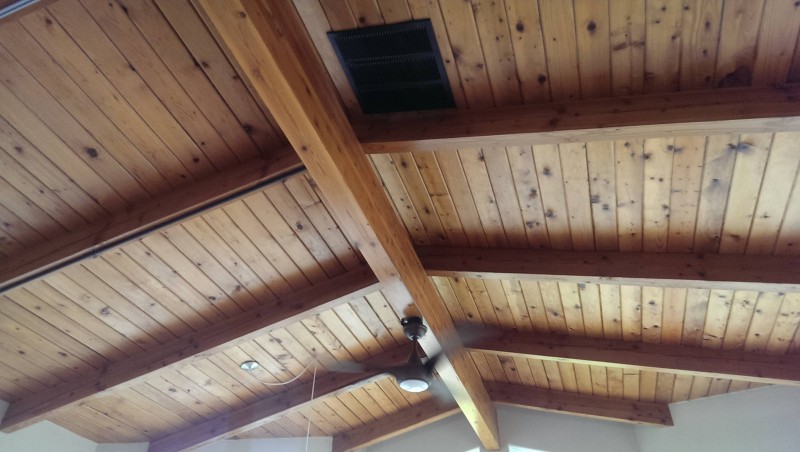
Winter is a magical time of the year, with snowflakes falling gently and creating a picturesque landscape. However, along with its beauty, winter also brings colder temperatures, which can result in higher energy bills if your home is not adequately insulated. Proper insulation is essential to keep your home warm and cozy during the winter months while saving on heating costs. In this article, we will explore when you should insulate your home for winter, the benefits of doing so, and the different insulation options available to make your home winter-ready.
1. Assessing Your Home's Insulation Needs
Before you start insulating your home for winter, it's crucial to assess your current insulation. Check for any drafts or cold spots around windows and doors. Poor insulation can lead to energy loss, making it harder to maintain a comfortable temperature indoors. If your home is relatively new, it might already have adequate insulation. However, older homes might need an upgrade to keep up with modern insulation standards.
2. Early Fall: The Ideal Time to Insulate
The best time to insulate your home for winter is during the early fall months. As summer comes to an end and temperatures start to drop, it is the perfect opportunity to prepare your home for the colder season. By insulating in early fall, you ensure that your home is ready to face the winter chill head-on. Moreover, contractors and insulation professionals tend to be less busy during this time, making it easier to schedule the work.
3. Weather-Dependent Considerations
In some regions, winter arrives earlier than expected, catching many homeowners off guard. If you live in an area where winters are unpredictable, keep a close eye on weather forecasts. If the forecast indicates an abrupt temperature drop, it's better to insulate your home as soon as possible to avoid potential discomfort and higher heating costs.
4. Insulating Attics and Roofs
One of the critical areas to insulate is the attic or roof. Heat rises, and if your attic lacks proper insulation, you may lose a substantial amount of warmth through the roof. Insulating the attic during early fall ensures that the heat stays trapped inside, keeping your living spaces comfortably warm during winter.
5. Windows and Doors Insulation
Windows and doors are notorious for letting cold air seep into your home. Inspect them for any gaps or cracks and add weatherstripping or caulk as needed. Additionally, consider investing in energy-efficient windows and insulated doors to enhance your home's overall energy efficiency.
6. Basement and Crawl Spaces Insulation
Don't forget about the basement and crawl spaces when insulating your home. Uninsulated basements and crawl spaces can lead to cold floors and an overall chilly atmosphere. By insulating these areas, you can maintain a consistent temperature throughout your home and prevent cold drafts from creeping in.
7. Wall Insulation
If you have access to your walls, consider insulating them as well. Wall insulation significantly contributes to energy conservation and temperature regulation within your home. There are various insulation materials available, such as fiberglass, cellulose, and foam, each with its unique benefits.
8. Benefits of Insulating Your Home for Winter
Insulating your home for winter comes with numerous benefits. Firstly, it reduces your reliance on heating systems, leading to substantial energy savings. Secondly, it enhances the comfort level inside your home, providing a cozy environment for you and your family. Thirdly, proper insulation helps extend the lifespan of your heating equipment, as they won't have to work as hard to maintain the desired temperature.
9. Different Insulation Options
When insulating your home, you have various options to choose from. The most common types of insulation include batts, blown-in insulation, spray foam, and rigid foam boards. Each type has its unique characteristics, and the choice depends on factors such as your budget, the area you need to insulate, and your home's specific needs.
10. DIY vs. Professional Insulation
While some homeowners may choose to insulate their homes themselves to save money, it's essential to consider hiring a professional. Proper installation is crucial for insulation to work effectively, and experts have the knowledge and experience to ensure a job well done.
Insulating your home for winter is a proactive and cost-effective measure to ensure a warm and comfortable living space while keeping energy bills under control. Early fall is the ideal time to insulate, but it's crucial to be vigilant about the weather in regions with unpredictable winters. Remember to address critical areas like the attic, windows, doors, basement, crawl spaces, and walls to achieve optimal results. With the right insulation choices and professional installation, you'll create a cozy sanctuary to enjoy throughout the winter season.
Talat Mahmood: The Velvet Voice that Conquered Hearts